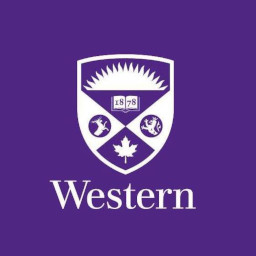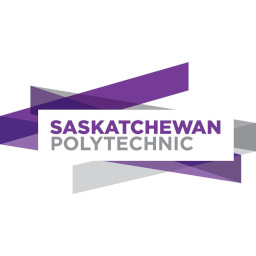Canada boasts many excellent institutions for data science. Here are ten of the best universities for MS in Data Science and Data Analytics in Canada.
- University of Toronto
- University of Waterloo
- University of British Columbia
- Western University
- Queen's University
- University of Saskatchewan
- Carleton University
- Trent University
- Northeastern University (Toronto Campus)
- HEC Montreal
Let us explore each university in Canada for MS in Data Science and Data Analytics.
1. University of Toronto
If you are considering the University of Toronto, you are looking at a globally recognized research powerhouse. Its data science programs are known for their academic rigor and strong connections to both industry and cutting-edge research. You will be learning in a vibrant, multicultural city that is a major tech hub, giving you access to a powerful network and career opportunities. The degree is designed to equip you with deep technical skills that are highly valued by employers worldwide.
|
Category
|
Details
|
|
QS Ranking 2026
|
#21
|
|
Location
|
Toronto, Ontario
|
|
Application Deadlines
|
Fall: November - January
|
|
Application Fee
|
CAD 125 (INR 7,600)
|
|
Average Annual Tuition Fee
|
CAD 48,000 (INR 29.3L)
|
|
Popular Programs Offered
|
Master of Science in Applied Computing (Data Science concentration)
|
|
Acceptance Rate
|
Approximately 22%
|
|
Admission Requirements
|
4-year bachelor’s degree, GPA 3.3/4.0, GRE recommended, IELTS 7.0
|
|
Official Website
|
www.utoronto.ca
|
2. University of Waterloo
Choosing the University of Waterloo means prioritizing real world experience through its famous co-operative education model. You will alternate between classroom learning and paid work terms, gaining unmatched industry exposure in Canada's tech heartland. This practical approach ensures you graduate not just with a degree, but with a robust resume and a professional network that will give you a significant advantage in the job market.
|
Category
|
Details
|
|
QS Ranking 2026
|
#112
|
|
Location
|
Waterloo, Ontario
|
|
Application Deadlines
|
Fall: December
|
|
Application Fee
|
CAD 125 (INR 7,600)
|
|
Average Annual Tuition Fee
|
CAD 35,000 (INR 21.3L)
|
|
Popular Programs Offered
|
Master of Data Science and Artificial Intelligence
|
|
Acceptance Rate
|
Approximately 25%
|
|
Admission Requirements
|
Relevant bachelor’s degree, GPA 3.0/4.0, IELTS 7.5
|
|
Official Website
|
uwaterloo.ca
|
3. University of British Columbia
The University of British Columbia offers a top tier data science education on one of the world's most beautiful campuses. The program is intensive and fast paced, designed to transform you into a job ready data professional in a short period. Located in Vancouver, a growing tech hub, you will benefit from a strong curriculum and a location that attracts top employers from around the globe.
|
Category
|
Details
|
|
QS Ranking 2026
|
#47
|
|
Location
|
Vancouver, British Columbia
|
|
Application Deadlines
|
Varies by program (Typically Fall: December)
|
|
Application Fee
|
CAD 114 (INR 6,950)
|
|
Average Annual Tuition Fee
|
CAD 42,000 (INR 25.6L)
|
|
Popular Programs Offered
|
Master of Data Science
|
|
Acceptance Rate
|
Approximately 18%
|
|
Admission Requirements
|
4-year bachelor’s degree, GPA 3.3/4.0, IELTS 7.0
|
|
Official Website
|
www.ubc.ca
|
4. Western University
Western University focuses on creating data driven business leaders. Its programs are designed to provide a strong analytical foundation while emphasizing the application of data science to solve business challenges. You will learn how to translate complex data into actionable insights that drive strategic decisions, making you a valuable asset in any corporate setting.
|
Category
|
Details
|
|
QS Ranking 2026
|
#201
|
|
Location
|
London, Ontario
|
|
Application Deadlines
|
Fall: February 1
|
|
Application Fee
|
CAD 115 (INR 7,000)
|
|
Average Annual Tuition Fee
|
CAD 32,000 (INR 19.5L)
|
|
Popular Programs Offered
|
Master of Data Analytics
|
|
Acceptance Rate
|
Approximately 35%
|
|
Admission Requirements
|
4-year bachelor’s degree, GPA 3.0/4.0, IELTS 6.5
|
|
Official Website
|
www.uwo.ca
|
5. Queen's University
Queen's University offers a management focused approach to analytics, ideal for those who aim to lead data science teams rather than just be individual contributors. The curriculum blends technical skills with business acumen, teaching you how to manage analytics projects and communicate effectively with stakeholders. This is the perfect path for engineers who aspire to leadership roles.
|
Category
|
Details
|
|
QS Ranking 2026
|
#209
|
|
Location
|
Kingston, Ontario
|
|
Application Deadlines
|
Fall: January 15
|
|
Application Fee
|
CAD 110 (INR 6,700)
|
|
Average Annual Tuition Fee
|
CAD 38,000 (INR 23.2L)
|
|
Popular Programs Offered
|
Master of Management Analytics
|
|
Acceptance Rate
|
Approximately 30%
|
|
Admission Requirements
|
4-year bachelor’s degree, GPA 3.0/4.0, GMAT/GRE, IELTS 7.0
|
|
Official Website
|
www.queensu.ca
|
6. University of Saskatchewan
The University of Saskatchewan provides an excellent and more affordable pathway to a quality data science education. You can pursue your studies without the high financial burden, while still benefiting from strong research programs and a supportive learning environment. It is a smart choice for value-conscious students who do not want to compromise on the quality of their education.
|
Category
|
Details
|
|
QS Ranking 2026
|
#501-510
|
|
Location
|
Saskatoon, Saskatchewan
|
|
Application Deadlines
|
Fall: February
|
|
Application Fee
|
CAD 90 (INR 5,500)
|
|
Average Annual Tuition Fee
|
CAD 20,000 (INR 12.2L)
|
|
Popular Programs Offered
|
Master of Science in Computer Science (Data Science focus)
|
|
Acceptance Rate
|
Approximately 45%
|
|
Admission Requirements
|
4-year bachelor’s degree, GPA 3.0/4.0, IELTS 6.5
|
|
Official Website
|
www.usask.ca
|
7. Carleton University
Carleton University's location in Ottawa, Canada's capital city, provides unique advantages for data science students. You will have access to opportunities in the government sector, tech industries, and numerous research institutions based in the region. The program leverages these connections to offer a practical education aligned with the needs of employers in the national capital region.
|
Category
|
Details
|
|
QS Ranking 2026
|
#751-760
|
|
Location
|
Ottawa, Ontario
|
|
Application Deadlines
|
Fall: February 1
|
|
Application Fee
|
CAD 100 (INR 6,100)
|
|
Average Annual Tuition Fee
|
CAD 28,000 (INR 17.1L)
|
|
Popular Programs Offered
|
Master of Data Science and Analytics
|
|
Acceptance Rate
|
Approximately 40%
|
|
Admission Requirements
|
4-year bachelor’s degree, GPA 3.0/4.0, IELTS 6.5
|
|
Official Website
|
carleton.ca
|
8. Trent University
Trent University offers a distinctive, interdisciplinary approach to data science. This is an ideal choice if you are interested in applying data science to specific fields like environmental science, humanities, or social sciences. The program encourages you to use data to solve problems in diverse areas, making it a great fit for students with broad interests.
|
Category
|
Details
|
|
QS Ranking 2026
|
#1401+
|
|
Location
|
Peterborough, Ontario
|
|
Application Deadlines
|
Fall: February 1
|
|
Application Fee
|
CAD 100 (INR 6,100)
|
|
Average Annual Tuition Fee
|
CAD 22,000 (INR 13.4L)
|
|
Popular Programs Offered
|
Master of Science in Data Science
|
|
Acceptance Rate
|
Approximately 50%
|
|
Admission Requirements
|
4-year bachelor’s degree, GPA 2.8/4.0, IELTS 6.5
|
|
Official Website
|
www.trentu.ca
|
9. Northeastern University (Toronto Campus)
Northeastern University's Toronto campus brings its highly regarded experiential learning model to Canada. The core of the education is learning by doing, through industry-aligned projects and co op opportunities. This model is designed to ensure you graduate with the practical skills and experience that employers are actively seeking.
|
Category
|
Details
|
|
QS Ranking 2026
|
#375 (Global)
|
|
Location
|
Toronto, Ontario
|
|
Application Deadlines
|
Fall, Winter, Spring
|
|
Application Fee
|
CAD 75 (INR 4,570)
|
|
Average Annual Tuition Fee
|
CAD 45,000 (INR 27.4L)
|
|
Popular Programs Offered
|
MS in Data Science
|
|
Acceptance Rate
|
Approximately 35%
|
|
Admission Requirements
|
4-year bachelor’s degree, GPA 3.0/4.0, IELTS 6.5
|
|
Official Website
|
toronto.northeastern.edu
|
10. HEC Montreal
HEC Montreal is a premier business school, offering a unique opportunity for students targeting the Quebec or bilingual job markets. The programs are taught in French and focus on the intersection of data science and business strategy. This combination makes graduates exceptionally strong candidates for roles in Quebec, across Canada, and in international French speaking markets.
|
Category
|
Details
|
|
QS Ranking 2026
|
#1 in Canada for Business Masters
|
|
Location
|
Montreal, Quebec
|
|
Application Deadlines
|
Fall: January 15
|
|
Application Fee
|
CAD 100 (INR 6,100)
|
|
Average Annual Tuition Fee
|
CAD 30,000 (INR 18.3L)
|
|
Popular Programs Offered
|
MSc in Data Science and Business Analytics
|
|
Acceptance Rate
|
Approximately 30%
|
|
Admission Requirements
|
4-year bachelor’s degree, GPA 3.0/4.0, GMAT/GRE, French proficiency
|
|
Official Website
|
www.hec.ca
|















